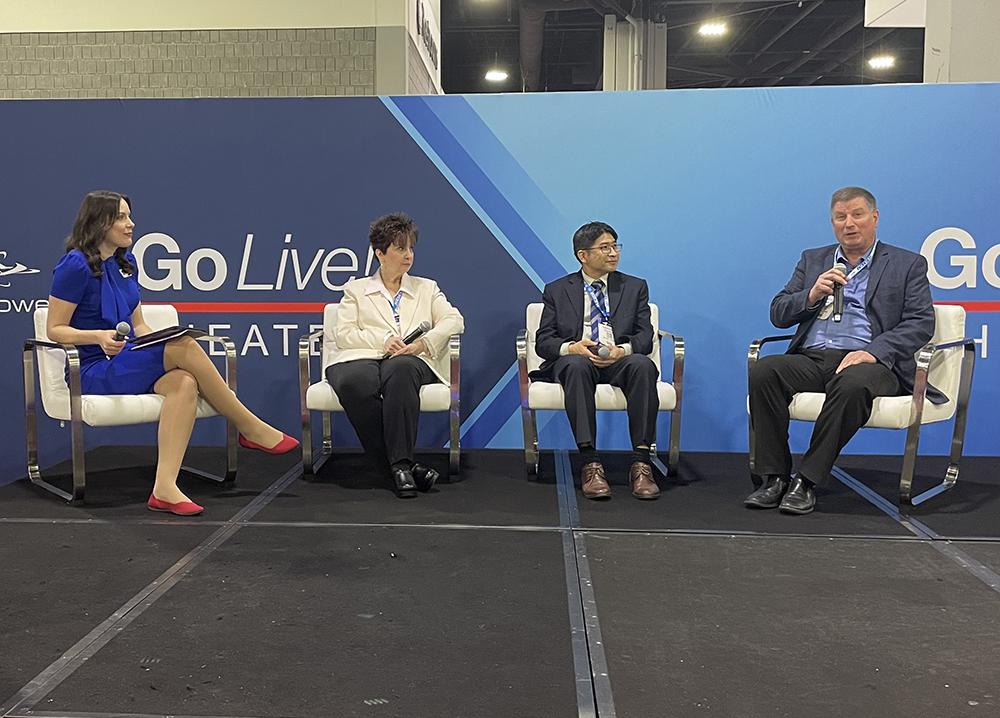
From left: Lindsay Bjerregaard, managing editor for MRO at Aviation Week Network; Lori DiMarco, senior vice president of technical operations at Mesa Airlines; David Guo, head of tech ops sourcing and fleet integration at Amazon Air; and Kurt Kinder, vice president of maintenance operations at Southwest Airlines.
Mentorship has a critical role to play in enabling the next generation to discover the “fun and marvel in being an aircraft mechanic," according to Southwest Airlines Vice President of Maintenance Operations Kurt Kinder.
During a panel on mentorship at Aviation Week Network's MRO Americas 2025 event, Kinder told the audience that both formal and informal mentorship is “helping our new young mechanics to love aviation maintenance.
“They’re coming into this job because they got a job,” he said. “And they’re asking ‘I have to work a night shift for 20 years?’ You need to love it.”
David Guo, head of tech ops sourcing and fleet integration at Amazon Air, noted that the workplace is more competitive for employers, raising the importance of mentorship in this context.
“There’s a lot more choice now than 25 years ago. People want to go into artificial intelligence or high-tech,” he said. “People need to feel like there’s a career path and see the future; they’re not just doing what people were doing 25 years ago.”
Mentorship also is required to help build the soft skills such as troubleshooting and communicating with pilots, which traditional training is less effective at supporting, said Kinder.
This was echoed by fellow panelist Lori DiMarco, senior vice president of technical operations at Mesa Airlines, who noted that mentorship supports people in understanding “basic things like getting to work on time.
“It’s the soft skills; when you go into the cockpit it’s how you talk to the crew and the passengers see you. You need to be mindful of that perception," said DiMarco. “Training is great, but people need someone to go to when they need to ask a ‘silly question.’"
She added: “Most airlines have a formal mentorship [program], but we need to have an informal system, too. You need to talk the talk to help people. If they stop and ask you questions, you need to be there.”
Soft skills are increasingly vital in an evolving workplace, added Guo.
“We live in a different world. For mechanics, it’s much more collaborative, so being able to communicate in a meaningful way is very important,” said Guo. “In terms of mentorship, we need to help our younger generation [understand] that it’s more than ‘putting your head down and doing your job.’”
Mentorship can help support the next generation in progressing with their careers, both with practical guidance but also understanding what experience is required, said Guo.
“Younger people have much higher expectations and wonder, ‘When am I going to be a senior manager?' It’s important to help them understand that there is a path and you need to work your way there,” added Guo.
Kinder said Southwest is actively providing career support and guidance to help young people navigate that career path.
“What mentees are looking for is a connection. They would love to work for a major airline but they don’t know how to get there,” he said. “They can’t come straight out of A&P [airframe and powerplant] school and work for Southwest, so we help to guide them on how to build up that experience.”





